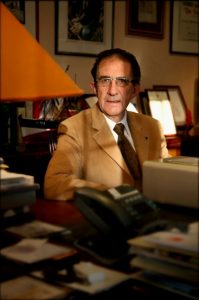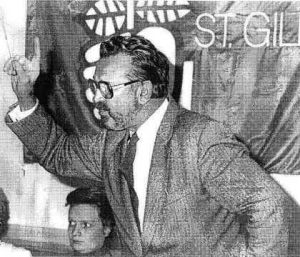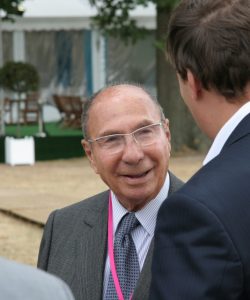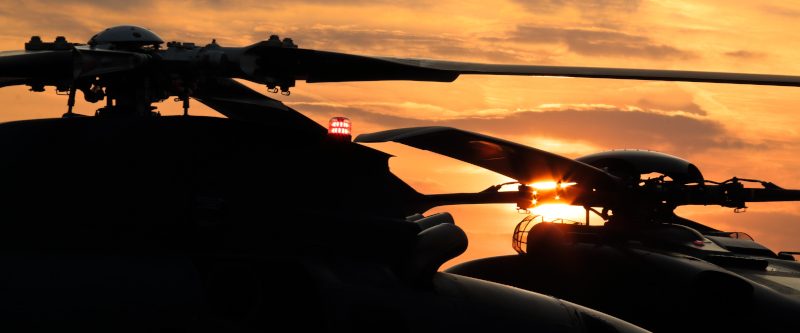Funding the Belgian Socialist Parties
Introduction

On July 18, 1991, the retired Belgian politician André Cools, an influential Socialist figure and former deputy prime minister, was shot to death by two assailants in the Cointe neighborhood of Liège. Through a series of confessions, the investigation into his death revealed two major arms procurement scandals involving the Flemish (Dutch-speaking) Socialistische Partij (SP) and the Wallonian (French-speaking) Parti Socialiste (PS). The ensuing prosecutions established that the SP had taken donations from the Italian helicopter producer Agusta and the French military electronics firm Électronique Serge Dassault (ESD) in exchange for favorable treatment in procurement contracts; the PS was implicated in the ESD deal alone. The fallout from the scandals resulted in the resignation of a former Belgian minister of economy, Willi Claes, from the secretary-generalship of NATO in October 1995. Despite the political fallout from the Cools investigation, no firm link was ever established between the defense corruption cases and his assassination.
Key Facts
Buyer: Belgium
Sellers: Agusta (Italy), Electronique Serge Dassault (France)
Year of procurement decisions: 1988 (Augusta), 1989 (ESD)
Equipment and services sold:
46 A109 Helicopters, including 28 armed variants (Augusta)
Military electronics upgrades to 100 Belgian F-16 combat aircraft (ESD)
Value of deals: Augusta:
BFR 12 billion (around USD 350 million)
ESD: BFR 7.5 billion (around USD 225 million)
Sums involved in corruption allegations:
Augusta:BFR 51 million (around USD 1.5 million)
ESD: FFR 10 million and CHF 1.75 million (around USD 2.6 million)
Dramatis Personae
Willi Claes – minister of the economy, member of the Flemish SP; later the NATO Secretary-General; resigned from NATO position. Convicted of influencing the tender award in both cases and received a three-year suspended sentence.
Guy Coëme – defense minister, member of the Wallonian PS; convicted of involvement in the ESD deal and received a two-year suspended sentence.
Johan Delanghe – Willi Claes’ secretary; convicted of influencing the tender award in both deals, received a suspended eighteen-month sentence.
Guy Spitaels – head of the Wallonian regional government, member of the Wallonian PS; convicted on charges of unlawfully awarding the F-16 upgrade tender to ESD, sentenced to a suspended two-year sentence.
Etienne Mangé – treasurer of the Flemish SP; convicted of involvement in both deals, received a suspended one-year sentence.
Luc Wallyn – former deputy secretary general of the Flemish SP; convicted of setting up accounts under false pretenses to abet bribe payments and of involvement in the two deals, received a suspended two-year sentence.
Franck Vandenbrouke – foreign minister, former leader of the Flemish SP in parliament; resigned, but was not charged in relation to the scandal.
Georges Cywie – Agusta’s agent in Belgium.
Serge Dassault – head of ESD and other Dassault-family firms; convicted on bribery charges and sentenced to a suspended two-year sentence.
Rafaello Teti – chairman of Agusta helicopters from 1983 to 1988; died in August 1998.
Alfons Puelinckx – Belgian lawyer, intermediary in both deals. Convicted of setting up accounts under false pretenses to abet bribe payments and involvement in the Agusta deal, sentenced to a suspended two-year sentence.
André Cools – retired PS leading figure, former deputy prime minister; murdered in July 1991.
Alain Van Der Biest – minister in the Wallonian regional government, member of the Wallonian PS; committed suicide in 2002 while prosecutors were considering charging him with Cools’ murder.
The Arms Deals
The Belgian military launched its “Aéromobilité 1” tender to succeed aging Alouette II reconnaissance helicopters in the late 1970s, but a final decision on a replacement was not made until 1988. That year, the French helicopter manufacturer Aérospatiale, offering the AS 350-L “Ecureuil,” was beaten to the contract by Italian firm Agusta, which offered the A-109. The tender called for the new generation of Belgian army helicopters to not only serve in a reconnaissance role, but also to be armed with air-to-ground missiles. In December 1988, Agusta won the BFR 12 billion (around USD 350 million, in 1988 dollars) tender for 28 armed and 18 unarmed variants. In securing the tender, Agusta promised to situate some 43% of its offset investments in the French-speaking region of Wallonia, which was higher than the 35% proportion usually assigned to the region in line with its share of the Belgian population. It subsequently signed an agreement with the Belgian aerospace firm SABCA to assemble the A-109 units in-country, while also promising to make three major investments: a spare-parts center at the Liège-Bierset airport, a maintenance center at Zaventem, and a composite materials center at Lummen, in Belgian Limburg.
The Belgian Air Force was at the time also offering a tender for upgrades to the electronic counter-measure (ECM) systems of Belgian F-16 combat aircraft. Originally, Belgium had intended to buy the Rapport III radar detection warning system developed by Loral for the U.S. Air Force, but changed plans due to cost increases and lack of confidence in Loral’s ability or willingness to transfer technology. After withdrawing from the Rapport III project, the two primary competitors for the Belgian tender were French company Électronique Serge Dassault (ESD) and a division of U.S. firm Litton Industries, Litton Advanced Technology (now part of Northrop Grumman). In May 1989, the Belgians selected ESD to provide 135 units (later reduced to 100 units) of its Carapace ECM system to upgrade the country’s entire fleet of F-16s, at a price of BFR 8.6 billion (later reduced to BFR 7.5 billion, or USD 225 million in 1988 dollars). As part of the deal, ESD would make offset investments in companies with Belgian plants, including Siemens, SABCA, Barco, and Bell Alcatel. After difficulties emerged in installing the Carapace system into the F-16s, Belgium decided to issue an additional USD 29 million contract to General Dynamics to solve the integration problem.
The Corruption Allegations
An opening to corruption was created in both cases by the same business relationship, between a middleman lawyer, Alfons Puelinckx, and a former SP deputy leader, Luc Wallyn. Puelinckx helped the heads of Agusta and ESD find a willing party within the socialist establishment, namely Wallyn, who could negotiate large donations to the two Belgian socialist parties in exchange for an edge over their competitors. In both cases, the conspirators took efforts to mask the donation transfers, and brought in chief policy aides and ministers to put the deal into effect. While monetary bribes were the focus of the investigation into the two scandals, preferential siting of offset investments were also part of the deal that Agusta, in particular, struck with the Belgian ministers.
The Investigation and Outcomes

The murder of André Cools in 1991 led immediately to a search for corruption within the Wallonian and Flemish socialist parties because Cools had claimed, shortly before his death, that he would soon come forward with specific bribery allegations. Initially, suspicion fell on Alain van der Biest, a minister in the regional Wallonian government, who was suspected of involvement in a shares manipulation scheme. Van der Biest, in turn, turned prosecutors onto the scent of the Agusta deal, accusing Cools, Guy Spitaels, Guy Coëme, and party chairman Philippe Busquin of corruption. In January 1994, Spitaels, Coëme, and a third member of the Wallonian PS, Guy Mathot, resigned in response to the allegations. Coëme was not ultimately found liable for involvement in the Agusta case, but was suspected of pressuring Agusta to favor Wallonian companies in structuring its offsets package. Although he was not charged, the Italian press implicated Mathot by publishing leaked internal Agusta correspondence that suggested he had unsuccessfully asked for a large commission.
Agusta’s lobbyist in Belgium, Georges Cywie, was arrested in February 1993. While Cywie was initially believed to be the key go-between in the deal, prosecutors later shifted their focus to a lawyer, Alfons Puelinckx, as the original link between Agusta and Luc Wallyn, a former deputy leader of the Flemish SP. Puelinckx and Wallyn accused each other of reaching out to the other first. In its judgment of Dec. 23, 1998, the Cour de Cassation decided that Wallyn’s account was more reliable, and that it was therefore likely that Puelinckx had made contact first on behalf of Agusta with a bribe offer. Wallyn consulted with Etienne Mangé, the SP’s treasurer, and Johan Delanghe, the secretary of minister Willi Claes. Mangé had previously been tasked with cleaning up the perennially bankrupt accounts of the SP’s newspaper, De Morgen, and Delanghe held a position of informal leadership among the other ministers’ secretaries, as noted by the 1998 judgment. Agusta originally offered a gift of BFR 100 million, but, at the SP’s request, this was reduced to BFR 51 million to make it easier to mask. Also at the SP’s request, Puelinckx transferred the monies through an account in Zürich, opened in the name of a Panamanian shell company.
Prosecutors established that the “gift” was a bribe linked to award of the Agusta deal by noting that the transfer was made in two parts, one before and one after the final decision on the deal. Further, Wallyn admitted that Agusta reached out because it knew key members of the SP would be involved in the tender decision, which justified bringing Delanghe into the conspiracy. Delanghe and other negotiators seemingly favored the Agusta side by extending negotiations over their final offer late into the night of the deadline, and both Delanghe and his boss, Claes, knew that some of the offset offers on the table were impractical—as did minister of defense Coëme. Prosecutors established Claes’ culpability in part by emphasizing his attempt to hide from investigators a meeting with Rafaello Teti, the head of Agusta, on Jan. 8, 1989.
In February and March 1995, investigators continued arresting key figures in the Agusta scandal, including Puellinckx and Wallyn. Investigators were also unravelling a second corruption conspiracy based on confessions by Mangé, this one involving ESD and the Belgian F-16 ECM upgrades contract. Magné alleged that ESD had transferred FFR 10 million into the accounts of an SP official. Following a raid of Dassault’s offices in Brussels on March 7, a former chief of staff of the Belgian Air Force involved in the deal, Lt. Gen. Jacques Lefebvre, committed suicide. Frank Vandenbroucke, the Belgian foreign minister and a member of the SP, resigned in March after admitting to ordering Mangé to burn a bundle of SP cash which he suspected to be left-overs from a more permissive period of corporate donations in the 1980s. Mangé never carried out the order, which was given in 1991.
The ESD bribes were also the product of the Wallyn-Puelinckx connection, and again the two gave conflicting testimony on which side originated the plan. Puelinckx knew that Serge Dassault’s family of companies had a general strategy of lobbying political parties that wielded authority in procurement decisions. Puelinckx also played a role in ensuring that the FFR 10 million for the SP, transferred out of funds controlled by Serge Dassault’s mother, was not paid out until the first contracts under the tender were finalized in June 1989. In the ESD case, prosecutors were able to establish that the Wallonian PS also received payments, one of CHF 500,000 in April 1989 and another of CHF 1.275 million in June.

In February 1989, shortly after the Agusta contract was concluded, air force evaluators involved in the F-16 upgrade tender submitted a report indicating that they preferred Litton Industries’ TWS-95 radar warning receiver over ESD’s Carapace. Air Force Lt. Gen. Alexander Moriau, Lefebvre’s successor as chief of staff since February 1989, filed a note in April 1989 that eliminated the preference for the Litton offer, giving the justification that further negotiations with ESD had made the two offers equivalent. Under questioning, Moriau reported that staff at the ministry of defense had instructed him to change the report’s recommendation or risk a total cancellation of the tender. Moriau also told investigators that there had been no further negotiations with ESD since February, and that therefore the April note’s reasoning was fraudulent. Prosecutors established that the defense minister, Coëme, and Delanghe were responsible for the pressure put on Moriau to file the April note. While Claes was not involved, he knew about the intervention; additionally, Spitaels likely knew about the creation of the PS accounts used to receive bribes from ESD.
N.B.: The primary source for this narrative of the case is the Cour de Cassation judgment available through the Belgian court system’s online portal.
In December 1998, Willi Claes and Guy Coëme, the economics and defense ministers at the time of the deals respectively, were found guilty of receiving bribes and sentenced to three and two years in prison. Claes had earlier been forced to resign from his position as the secretary general of NATO in October 1995, after the Belgian parliament voted to refer the investigation to trial. Guy Spitaels, who had been the head of the Wallonian government, was also convicted and sentenced to two years. On the recommendation of the prosecutor, however, all of the sentences were suspended.
Serge Dassault was convicted of bribery (“active” corruption) and sentenced to a suspended two-year sentence. Rafaello Teti, the former chairman of Agusta, died in August 1998. Etienne Mangé received a one-year term. In the course of the trial, the prosecutor suggested that he was protecting his superiors in the SP: the former interior minister Louis Tobback and EU Commissioner Karel van Miert; their suspected involvement was never substantiated. Mangé, who at the time was working abroad in Malaysia, paid a heavy personal cost, however, as his wife committed suicide in the course of the investigation. Luc Wallyn and Alfons Puellinckx both received two year terms, while Johan Delanghe was sentenced to eighteen months. Four other co-conspirators were sentenced to similar or lesser terms. All of the prison terms were suspended.
In 2005, the European Court of Human Rights (ECtHR) issued a judgment addressing an appeal by Claes, Coëme, Puelinckx, Wallyn, Delanghe, Dassault, and one other conspirator, Merry Hermanus. The appeal argued that Belgium had erred in referring their case to the high court—the Cour de Cassation—instead of a lower court without prior provisions regarding proper jurisdiction under Belgian law. The ECtHR rejected this argument as far as it referred to Claes and Coëme, arguing that provisions were in place for government ministers, but accepted the argument for the other defendants, awarding them damages.
The murder of André Cools was eventually pinned on a conspiracy by staff of Alain van der Biest, including his aide Richard Taxquet and his chauffer Giuseppe (Pino) di Mauro. After a series of trials and appeals, Taxquet and certain other defendants were relieved to discover that too much time had passed since the original crime and that charges against them were now inadmissible. Van der Biest committed suicide in 2002 as prosecutors mulled bringing him to trial for his suspected role in the murder. Two Tunisian hitmen were convicted of conducting the assassination as well. Despite lingering uncertainty about the motives and personalities behind the assassination, there is little evidence that the murder which first catalyzed investigation of the corruption scandals was connected to the scandals themselves.
Banner Image Credit
Image Caption: An Agusta A-109 and NHIndustries NH-90 at Beauvechain Airbase, Belgium, in April 2017.
Image Source: Flickr/Creative Commons, Hemesse.
Sources (Click to Expand)
“L’achat de 46 hélicoptères par la Défense nationale” [The purchase of 46 helicopters by the Ministry of National Defense], L’Echo (online), Nov. 26, 1988, https://www.lecho.be/actualite/archive/L-achat-de-46-helicopteres-par-la-Defense-nationale/8319737.
“La Sabca et Agusta signent l’accord sur les compensations,” L’Echo (online), Apr. 28, 1990, https://www.lecho.be/actualite/archive/La-Sabca-et-Agusta-signent-l-accord-sur-les-compensations/8356324.
“Agusta hit by corruption scandal,” Flight International, Apr. 21-27, 1993, https://www.flightglobal.com/FlightPDFArchive/1993/1993%20-%200852.PDF.
“Belgian air force completes testing of Carapace ECM,” Flight International, Jan. 11, 1995, https://www.flightglobal.com/news/articles/belgian-air-force-completes-testing-of-carapace-ecm-28051.
Sylvain Ephimenco, “Un général belge, Jacques Lefevre, mis en cause dans une affaire de pots-de-vin se suicide,” Libération (online), Mar. 9, 1995, http://www.liberation.fr/planete/1995/03/09/un-general-belge-jacques-lefevre-mis-en-cause-dans-une-affaire-de-pots-de-vin-se-suicide_127105.
Herman de Wulf, “Belgian scandal results in ‘suicide,’” Flight International, Mar. 15, 1995, https://www.flightglobal.com/news/articles/belgian-scandal-results-in-39suicide39-27678.
Jos Klaasen, “Minister van BZ in Belgie treedt af wegens Agusta-affaire,” De Volkskrant (online), Mar. 23, 1995, https://www.volkskrant.nl/archief/minister-van-bz-in-belgie-treedt-af-wegens-agusta-affaire~a395144.
Sarah Helm, “Belgian MPs vote to send Claes for trial,” The Independent (online), Oct. 20, 1995, http://www.independent.co.uk/news/world/belgian-mps-vote-to-send-claes-for-trial-1578457.html.
“Brazilië levert kroongetuige in Agusta-affaire aan België uit,” Trouw (online), May 2, 1996, https://www.trouw.nl/home/brazilie-levert-kroongetuige-in-agusta-affaire-aan-belgie-uit~a10f71b1.
Mary Dejevsky, “Dassault arrest warrant to rock France and Belgium,” The Independent (online), May 10, 1996, https://www.independent.co.uk/news/world/dassault-arrest-warrant-to-rock-france-and-belgium-1346497.html.
Scott Hughes, “Who was Andre Cools, and why was he killed?” The Independent (online), Sep. 10, 1996, https://www.independent.co.uk/news/who-was-andre-cools-and-why-was-he-killed-1362631.html.
Birgit Donker, “Agusta-affaire trof Belgische politiek hard,” Sep. 2, 1998, https://www.nrc.nl/nieuws/1998/09/02/agusta-affaire-trof-belgische-politiek-hard-7412948-a759000.
Jean-Claude Broché and Marc Vanesse, “Audience de Mardi – Dieu crucifié par Eliane Liekendael,” Oct. 14, 1998, http://www.lesoir.be/archive/recup/%252Faudience-de-mardi-dieu-crucifie-par-eliane-liekendael-l_t-19981014-Z0FWEX.html.
“Arrêt, Numéro de rôle A940001F,” Cour de Cassation, Chambres Réunies, Dec. 23, 1998, available from http://jure.juridat.just.fgov.be/JuridatSearchCombined/?lang=fr.
Patrick Smyth, “Belgian court finds Claes, 10 officials and French businessman guilty of corruption,” The Irish Times (online), Dec. 24, 1998, https://www.irishtimes.com/news/belgian-court-finds-claes-10-officials-and-french-businessman-guilty-of-corruption-1.228702.
Stephen Castle, “Ex-Nato chief guilty of corruption,” The Independent (online), Dec. 24, 1998, http://www.independent.co.uk/news/ex-nato-chief-guilty-of-corruption-1194176.html.
“Procès Agusta: Dassault et Claes condamnés. Prison avec sursis pour l’avionneur français et l’ancien ministre belge,” Libération (online), Dec. 24, 1998, http://www.liberation.fr/planete/1998/12/24/proces-agusta-dassault-et-claes-condamnes-prison-avec-sursis-pour-l-avionneur-francais-et-l-ancien-m_254244.
Willy de Buck, “Todarello spaart Taxquet en Di Mauro niet,” Nieuwsblad (online), Nov. 7, 2003, https://www.nieuwsblad.be/cnt/nbna07112003_004.
“Six jailed over Belgian killing,” BBC News, Jan. 8, 2004, http://news.bbc.co.uk/2/hi/europe/3377035.stm.
Sebastien Berger, “Six found guilty of murder 12 years on,” The Telegraph (online), Jan. 8, 2004, https://www.telegraph.co.uk/news/worldnews/europe/belgium/1451177/Six-found-guilty-of-murder-12-years-on.html.
“Affaire Claes et Autres c. Belgique, Judgment,” European Court of Human Rights, Sep. 2, 2005, http://hudoc.echr.coe.int/eng?i=001-69230.
“Huit Agusta se font porter pales,” L’Echo (online), Mar. 27, 2010, https://www.lecho.be/actualite/archive/Huit-Agusta-se-font-porter-pales/8897363.
“Comment l’affaire Agusta-Dassault a fait chuter Guy Spitaels et Co,” La Libre (online), Aug. 21, 2012, http://www.lalibre.be/actu/belgique/comment-l-affaire-agusta-dassault-a-fait-chuter-guy-spitaels-et-co-51b8806ce4b0de6db9a9522d.
“Assassinat d’André Cools: Castellino et Taxquet veulent un nouveau procès,” L’Avenir (online), Jan. 7, 2014, http://www.lavenir.net/cnt/dmf20140107_00413534.
“La saga continue dans l’affaire Cools: Richard Taxquet et Domenico Castellino rejugés dans un nouveau procès,” RTL Info, Jan. 11, 2017, https://www.rtl.be/info/belgique/faits-divers/richard-taxquet-et-domenico-castellino-rejuges-dans-le-quatrieme-proces-cools–881843.aspx.
“Journée déjà décisive au ‘procès Cools,’” La Libre (online), Jan. 16, 2017, http://www.lalibre.be/actu/belgique/journee-deja-decisive-au-proces-cools-587b9ac2cd70717f88f6c469.
